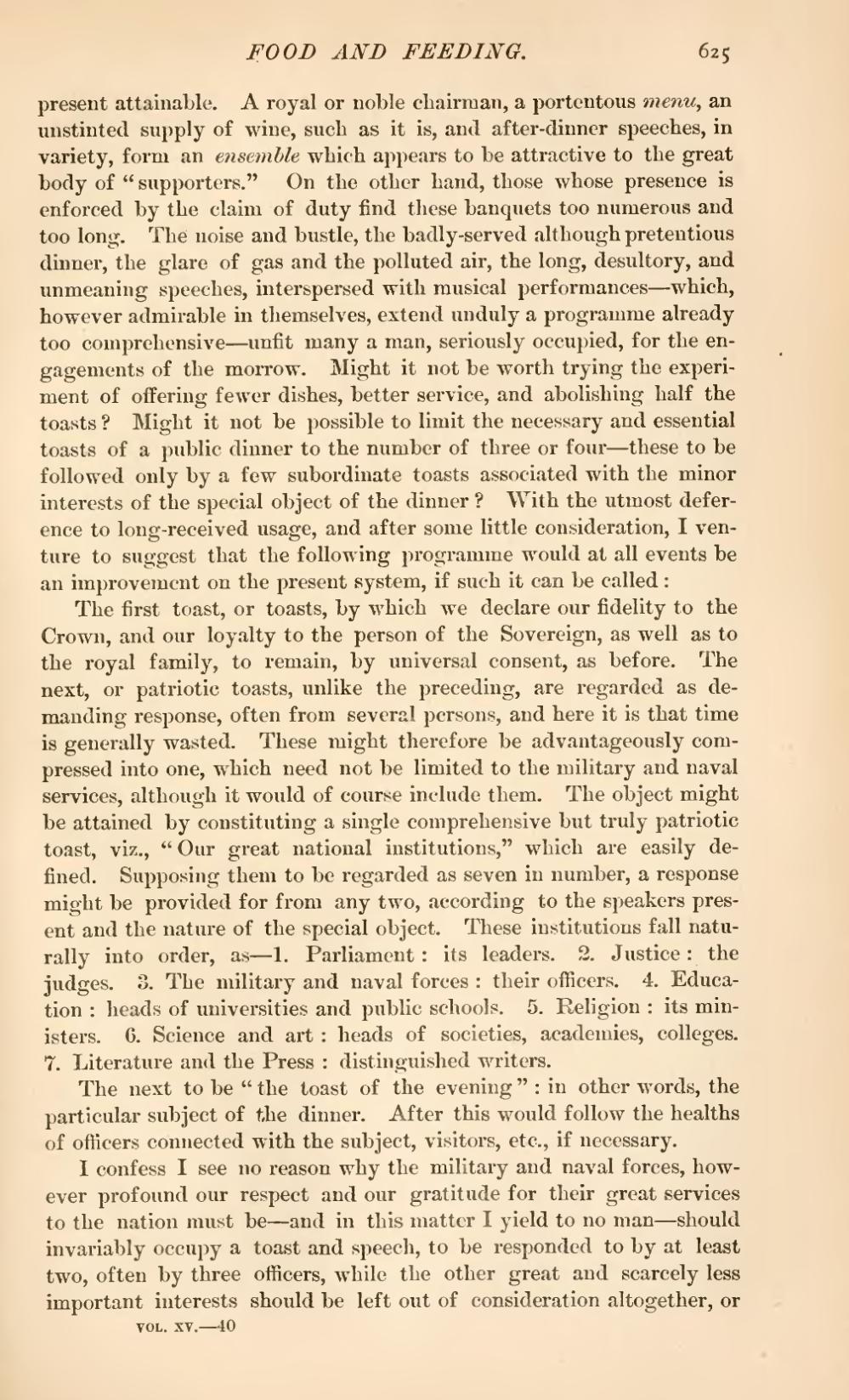present attainable. A royal or noble chairman, a portentous menu, an unstinted supply of wine, such as it is, and after-dinner speeches, in variety, form an ensemble which appears to be attractive to the great body of "supporters." On the other hand, those whose presence is enforced by the claim of duty find these banquets too numerous and too long. The noise and bustle, the badly-served although pretentious dinner, the glare of gas and the polluted air, the long, desultory, and unmeaning speeches, interspersed with musical performances—which, however admirable in themselves, extend unduly a programme already too comprehensive—unfit many a man, seriously occupied, for the engagements of the morrow. Might it not be worth trying the experiment of offering fewer dishes, better service, and abolishing half the toasts? Might it not be possible to limit the necessary and essential toasts of a public dinner to the number of three or four—these to be followed only by a few subordinate toasts associated with the minor interests of the special object of the dinner? With the utmost deference to long-received usage, and after some little consideration, I venture to suggest that the following programme would at all events be an improvement on the present system, if such it can be called:
The first toast, or toasts, by which we declare our fidelity to the Crown, and our loyalty to the person of the Sovereign, as well as to the royal family, to remain, by universal consent, as before. The next, or patriotic toasts, unlike the preceding, are regarded as demanding response, often from several persons, and here it is that time is generally wasted. These might therefore be advantageously compressed into one, which need not be limited to the military and naval services, although it would of course include them. The object might be attained by constituting a single comprehensive but truly patriotic toast, viz., "Our great national institutions," which are easily defined. Supposing them to be regarded as seven in number, a response might be provided for from any two, according to the speakers present and the nature of the special object. These institutions fall naturally into order, as—1. Parliament: its leaders. 2. Justice: the judges. 3. The military and naval forces: their officers. 4. Education: heads of universities and public schools. 5. Religion: its ministers. 6. Science and art: heads of societies, academies, colleges. 7. Literature and the Press: distinguished writers.
The next to be "the toast of the evening": in other words, the particular subject of the dinner. After this would follow the healths of officers connected with the subject, visitors, etc., if necessary.
I confess I see no reason why the military and naval forces, however profound our respect and our gratitude for their great services to the nation must be—and in this matter I yield to no man—should invariably occupy a toast and speech, to be responded to by at least two, often by three officers, while the other great and scarcely less important interests should be left out of consideration altogether, or

